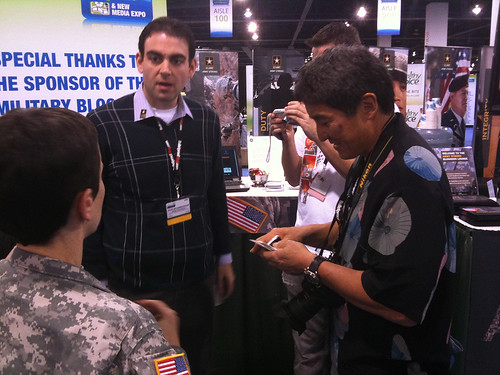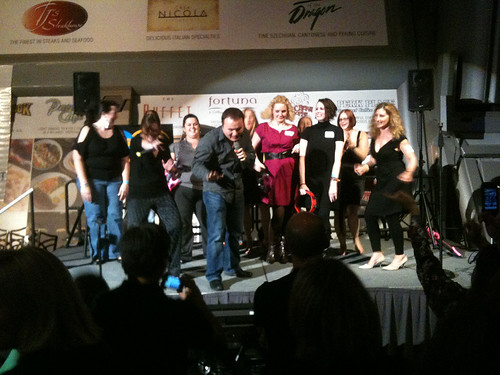I recently tried an audiobook for the first time. I always listen to music on the train to and from work, so I figured I could try and spend the time massaging my brain.
I had already wanted to read Free by Wired editor Chris Anderson, and when I learned it was available as a free audiobook, I jumped on the download. Unfortunately, I have the attention span of a five-year-old on a Pixi Sticks bender. I got half way through the audiobook before I was too distracted by kitten fight videos on YouTube, which I found far more digestible at the time.
I only recall Anderson arguing that costs of digital production and distribution are driven so low that digital content (newspapers, music, etc.) will always skew toward free or near-free costs for consumers.
Hopefully that’s close enough.
My professor assigned us to write our reactions to Free and criticisms by Tipping Point author Malcolm Gladwell, Dallas Mavericks owner Mark Cuban and consultant Seth Godin. I’d like to share them here because, despite the growing opportunities for “Free” content online, Americans still struggle financially, and I find this contrast fascinating. If so much information and content is free online, why aren’t we all better off financially? If movies, newspapers and television shows are all available for free online, why isn’t that money back in our pockets?
I had previously read Malcolm Gladwell’s New Yorker review/counterargument and re-reading it was refreshing. Gladwell attempts to go head-to-head with a handful of Anderson’s statements and really explains how “Free” is more of a marketing model than a business model. Mark Cuban’s blog (which desperately needs a copy editor) drives this point home in plain English.
I tend to agree with the counterargument. As Gladwell points out, trying to monetize truly free content is bad business, and YouTube is his star example. There are still fixed costs for operations of any business, even digital ones, where people spend labor building and maintaining infrastructure for the distribution platform of the free content.
So where does the money come from to support the operational costs? This is where I think Mark Cuban provides insight. His idea that controlling the distribution of free content is spot on. This is how content providers have functioned profitably for decades. Print is a distribution method. Cable TV is a distribution method. Before the Internet went mainstream, media companies were able to control how audiences consumed content through those channels, and advertisers bought-in for a slice of audience attention.
Online advertising has so far failed because media companies have failed to effectively control the distribution of their content. Why advertise with the media companies when their content is aggregated to a hundred other places through RSS and other digital syndication? Newspapers, for example, shot themselves in the foot embracing RSS. It broke their media networks by allowing readers to create their own networks. We don’t even have to discuss pirated content to emphasize how greatly content is devalued.
So long as content creators control their distribution models, they can still price their content as free but make money by attracting advertisers.
Example: Let’s say you could watch Saturday Night Live for free on NBC.com, or you could subscribe to a fictional NBC service, which allows you to view the video anywhere else it is embedded on the Internet. Hypothetically those would be the only two ways to consume the content (legally). Let’s look at this model from the perspective of a blogger or someone wanting to host video. You would only want to embed the video if you believe enough of your audience subscribes to NBC, and you would create demand for those who don’t. This would drive up the value of the subscription. Or maybe you’d save everyone the trouble and just point a link back to NBC.com. That would drive up the value of NBC’s hosting site. Either way, it's a win-win for the content provider and incentive for advertisers.
Until content providers get ahold of the distribution of their content, “Free” will continue to cannibalize existing media business models. In the meantime, we all should find ways to optimize what's "Free" for now and cut down the costs of living that have until now been dictated by cable companies and publishers.
Carpe diem.
 If the disgustingly cute family picture above doesn't persuade you, I don't know what will.
If the disgustingly cute family picture above doesn't persuade you, I don't know what will.








